A few months back I was fitted with hearing aids. My family had been complaining about the TV volume going up. It had reached a point where they felt like they were in a surround-sound cinema and not their own living room. There were also issues with me struggling to follow conversations, especially at places with a lot of background noise like restaurants and bars. And I was finding it difficult to keep up with the conversations people were having at work. These are all strong signs of hearing loss, so after making an appointment with my doctor, I was referred to a specialist in the audiology department at my local hospital.
The audiologist (hearing specialist) ran a few simple tests and I was diagnosed with mild to moderate hearing loss. If it’s more serious the term they will use is acute or severe. Hearing aids were suggested as a possibility! There was no pressure. it was totally up to me, and after a bit of discussion with a family member who had come along for support, I decided to give them a go.
Two weeks later I was fitted with a pair of free digital hearing aids through the National Health Service (NHS), and although they have taken some getting used to, they’ve made a big difference to my life.
So, here’s a few things I’ve learned about using hearing aids, and how they could help you, or someone you suspect may be struggling with hearing loss.
They Are Discreet
A lot of people who would benefit from hearing aids won’t consider them because they are worried about what others will think. I can understand that and I had the same fears, but It’s kind of crazy when you think about it. people are not so self-conscious when it comes to wearing glasses, right? There’s not a big difference between the two.
It’s because we think of hearing aids as something only the elderly use. They make you look older. Also, they are bulky, uncomfortable, and expensive. This is not true! Modern hearing aids are sleek and not very noticeable at all.
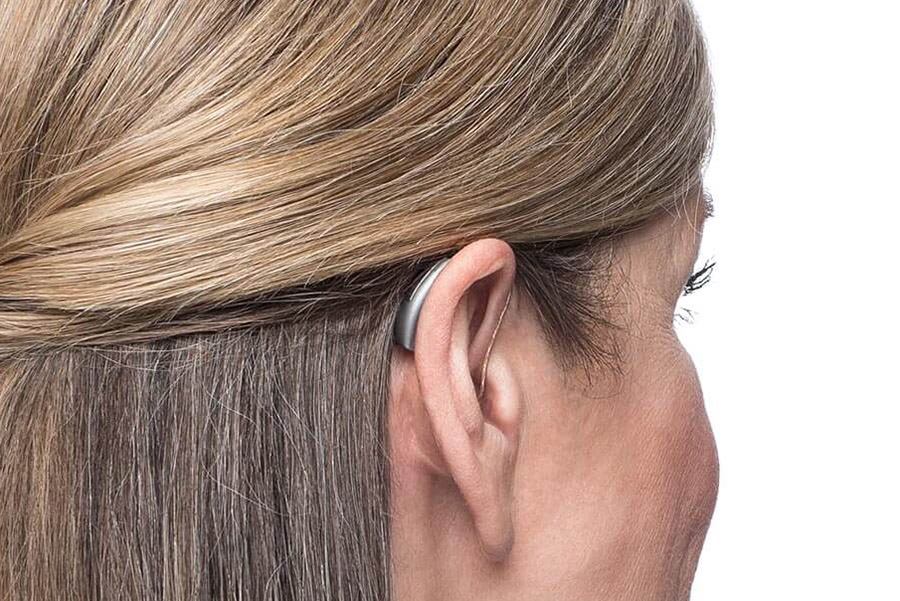
They can fit neatly behind the ear like this behind the ear Receiver IN Canal (RIC)
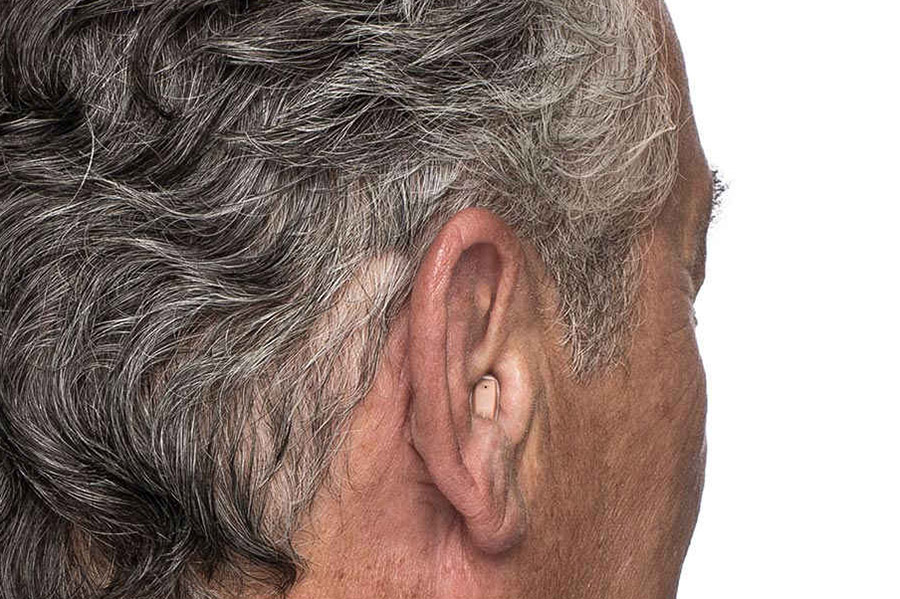
Or you can get ‘inside the ear’ (ITE) hearing aids, like these ones above.
Both of these designs look pretty discreet, right? Does either of these people look like a cyborg from a 1970’s Sci-fi show? Not at all! Plus, people nowadays use a lot more technology in and around there ears. Most folk won’t even notice. And for those who like stats, 28% of people in the UK who use hearing aids are under 60. A statistic which is only going to grow.
So no, hearing aids are not just for the elderly. And in the UK you can get them for free too
They Will Give You More Confidence
I realise now when I was at a party or any kind of social gathering, I was often withdrawn and not very chatty. The main reason for this was because I was struggling to follow conversations - and that was due to my hearing loss. Now, using hearing aids hasn’t turned me into a party animal (I’m just not that kind of guy), but I feel much more confident when sharing my opinions and just having a natural conversation.
I don’t have to concentrate quite so much on every word or continually ask people to repeat themselves. This was often embarrassing for me and frustrating for the person I was chatting to. If you give yourself time to get used to them, you will find hearing aids can actually give you that same confidence boost and allow you to express yourself in a way that you may find difficult to do because of your hearing loss.
Patience Is Important
Your brain needs to get used to hearing sound in a totally different kind of way. With a modern hearing aid, sound is picked up by a small microphone that sits in the ear canal. The sound waves that the hearing aid receives are sent to the inner ear, and as demonstrated here, are turned into signals that your brain can pick up.
Now, although hearing aids will improve your hearing it’s not the same as natural hearing. They can’t do the same job your ears and brain, working together, were able to do before you started to suffer from hearing loss. Time is also a factor! It can take up to 4 months for your brain to get used to processing noise in a different way and you might find that certain sounds appear to be much sharper at times.
On my first afternoon out and about after having my hearing aids fitted I noticed that I could hear a guy across from me on the other side of a busy street scrunching up an empty crisp packet. I could also pick up snippets of conversation from several meters away. It was a bit freaky! It felt like I had a superpower where certain sounds were magnified - which unfortunately included screaming children and car horns.
Okay, so there are better superpowers out there
Sound also felt a bit tinny to begin with. Kind of like I was playing a movie through a laptop without the speakers plugged in. But things are starting to settle down as my brain is becoming used to processing sound in a different way - it takes patience though. The worst thing you can do is keep taking them off. In fact, the more you use them the quicker your brain will adjust to a whole new method for picking up sound.
Getting an Appointment Is Easy
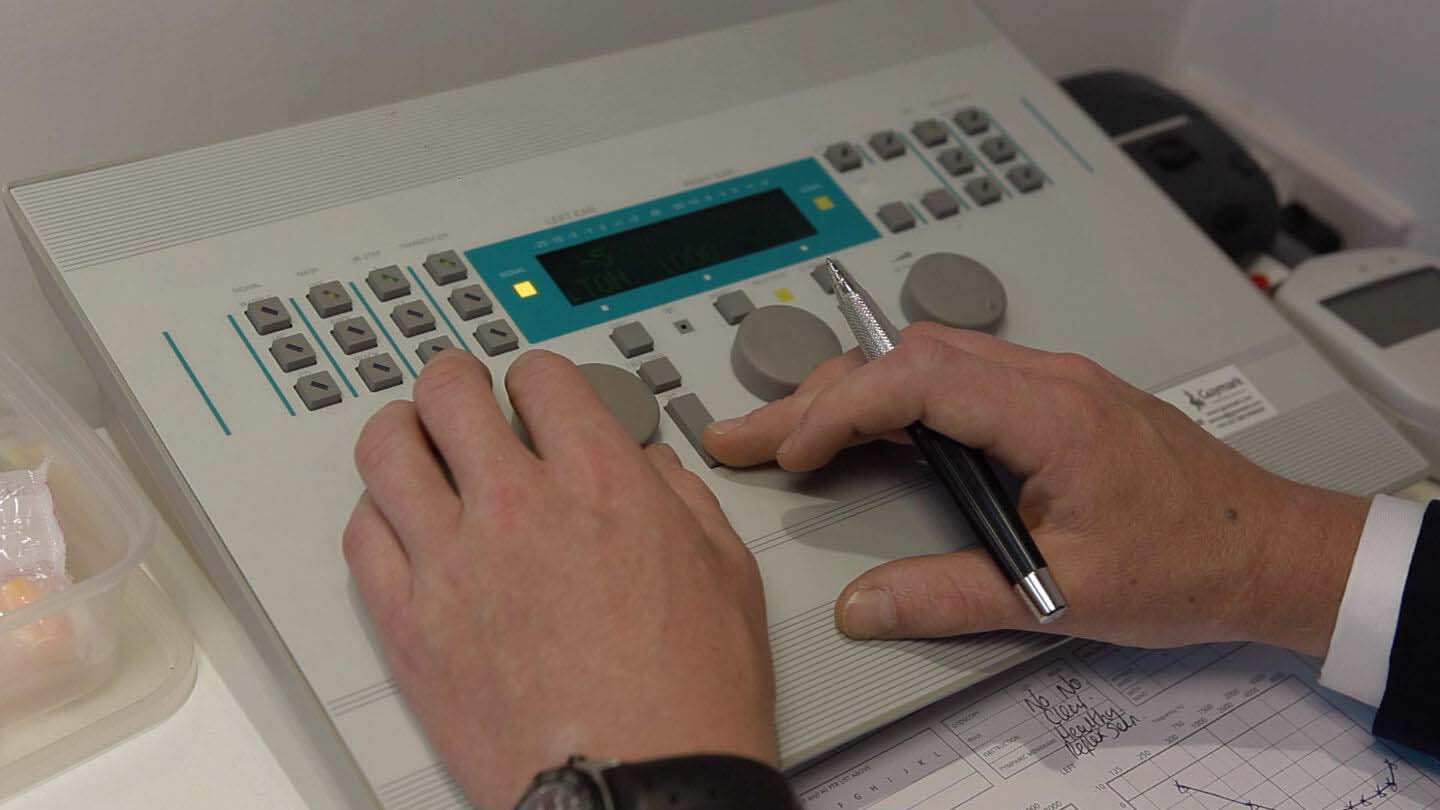
In the UK, you can make an appointment with your doctor. If they feel your hearing loss needs further investigation, you can ask to be referred to an audiologist - who specialise in conditions related to hearing loss. I got an appointment on the NHS in less than a month. This involved a series of simple tests that revealed the extent of my hearing loss. After deciding to try hearing aids, I was given a second appointment a couple of weeks later to have my hearing aids fitted. It took around 45 minutes and in that time the audiologist did the following:
- She used special software to conduct a sound test so that she knew what frequency to set my hearing aids too. This is important because you don’t want them to be too loud or too quiet.
- After setting the frequency, she checked that my hearing aids were the correct fit for me and that they were comfortable behind my ears.
- She taught me how to position my hearing aids, and showed me how to clean and maintain them.
There Are Different Types
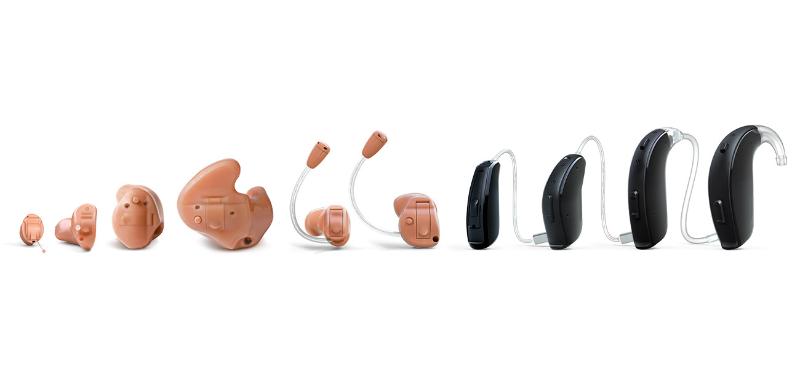
‘Behind the ear’ hearing aids (BTEs) are what I was prescribed with as an NHS patient. They were free and came with a couple of easy-to-use settings that I can toggle between. One setting is for environments where there’s not much background noise, and the other setting is designed to suppress the background noise in louder places so that you can focus more on what the people around you are saying.
To be honest, I have not noticed a huge difference between them.
They are perfectly functional. The only problem is because they sit behind my ears, if it’s a breezy day they often magnify the sound of the wind, which can make it difficult to pick up on other sounds.
But they are comfortable and easy to use
The alternative is custom made ‘in the ear’ (ITE’s). I was not given this option on the NHS. You will probably need to see a private specialist to get them fitted and pay for them too. They are more discreet, include more than two settings, and you won’t have to worry about the wind anymore. Because they are smaller and sit deeper in the ear canal it also means that it’s easier to talk on the phone without having to worry about the whistling noise that you can often get with (BTEs)
They are not perfect though
Yeah, they’re easier to insert, but they’re also more likely to get clogged up with ear wax which makes them harder to clean and more likely to need maintenance. Personally, unless you’re really concerned about how you look, I would choose the behind the ear variety. You can get them for free and they work just fine.
Look after Your Hearing Aids
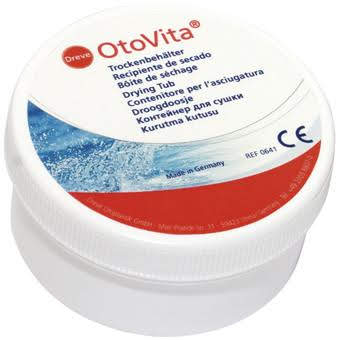
Be gentle with your hearing aids! Don’t rip them out of your ears or you could damage them. If, like me, you’re a bit heavy-handed, remember to take a more delicate approach when you’re dealing with your hearing aids. Behind the Ear hearing aids need to be cleaned once or twice a week and you will need to change the batteries every few days too. The batteries are small and a bit fiddly and changing them takes a little practice at first.
You’ll know when the batteries need to be changed because you’ll hear a little 3 note jingle in your ears. This warning is repeated until the battery dies. First time I heard it I thought it was kind of cool and didn’t want to change the batteries until I heard it a few times
You should be given a pouch to keep your hearing aids in, and along with that, you’ll also receive cleaning accessories.
This will consist of a really thin pipe for cleaning the connecting tubes. It’s used to remove blockages. You’ll also get a small brush for the ear mold that sits snugly inside your ear, and a pack of batteries too.
It might sound complicated but it really isn’t. Your audiologist will demonstrate how to clean your hearing aids and there are a bunch of tutorials and videos you can watch online too. You can also schedule a follow-up appointment, just to see how you’re getting on with them.
Final Thoughts
So far, hearing aids have made a big difference in my life. When I choose not to use them I notice how much harder it is to hear what’s going on around me.
Life’s that bit more frustrating
I also feel more comfortable in social situations because I have the confidence to engage more in conversation. And they are super easy to use and generally pretty comfortable. Yeah, sometimes people will notice and ask questions about them, but it’s out of simple curiosity and nothing else.
So, if you know someone who is clearly struggling with their hearing, or if you yourself are having problems, then I think hearing aids are a great option for managing hearing loss.
Like us on Facebook by clicking the button below to keep up with our latest burblings, you know you want to!





